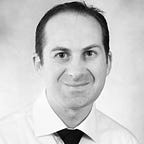The Value of Medical Advice from TV Doctors
A study from 2014 looked at the recommendations made on The Dr. Oz Show and The Doctors TV programs
Before he hit the Senate campaign trail in 2022, Mehmet Oz was a Columbia surgeon with three Ivy-league schools on his resume, and a TV show on the Discovery Channel.
Dr. Oz may not have started the TV Doctor genre, but over the years he certainly popularized it. By 2013, The Dr. Oz Show and a similar program The Doctors were the two most popular shows of that genre, and combined had 5 million daily viewers at the time. So that year, some Canadian researchers decided to do a study on the quality of medical advice dispensed on these two programs [1].
For the study, the researchers recorded 40 episodes of each show, mostly during early 2013. They selected 80 random recommendations from each show, and then did an assessment to determine whether each one was supported by any solid research or evidence. They categorized each recommendation based on whether they could find evidence in support of or contrary to the advice, and whether that evidence was based on good/excellent or poor quality research studies.
Below is a data visualization of what they found:
Only about 1/3 of the medical advice given by Dr. Oz was supported by solid case studies, good research or other reliable evidence. The Doctors TV program was a bit more reliable. Still, both programs dispensed a significant amount of medical advice that had no solid evidence to support it.
The study also categorized other things from the two programs, such as the most common types of recommendations. For Dr. Oz, it was most often dietary advice. That would includes a lot of questionable dietary supplement recommendations, which he is known for. Consequently, he ended up getting somewhat scolded by congress members at a 2014 hearing to discuss consumer protection, in particular regarding miracle weight loss pills and such.
And as for The Doctors, the most common recommendation was to consult with your primary care physician (which, really, is what one should be doing anyway).
Of course, even the best physicians are not mystic all-knowing oracles. Any human can be wrong, and any doctor (even good ones) may have no choice but to rely on experience and best guesses in the absence of available evidence in some cases. The study authors pointed to one study for comparison that found 78% of medical interventions recommended by real world physicians had at least some solid supporting evidence[2].
In conclusion, some TV doctors nowadays may give better or worse advice (we’ve certainly heard a lot of both during the pandemic), but it’s important to remember that TV is primarily an entertainment medium. As the study authors put it, “An interesting question is whether we should expect medical talk shows to provide more than entertainment.”
- Korownyk C, Kolber MR, McCormack J, Lam V, Overbo K, Cotton C, Finley C, Turgeon RD, Garrison S, Lindblad AJ, Banh HL, Campbell-Scherer D, Vandermeer B, Allan GM. Televised medical talk shows — what they recommend and the evidence to support their recommendations: a prospective observational study. BMJ. 2014 Dec 17;349:g7346. doi: 10.1136/bmj.g7346. PMID: 25520234; PMCID: PMC4269523.
- Imrie R, Ramey DW. The evidence for evidence-based medicine. Complement Ther Med 2000;8:123–6.
Robert Lawrence illustrates data and writes about science. His published work is at: www.robertlawrencephd.com
